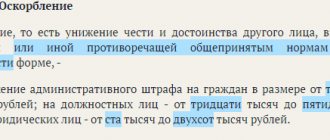Disposal of solid household waste: what has changed in the legislation
Law No. 89-FZ was supposed to change the existing system of collection, disposal and storage of household waste. The new procedure for handling MSW is carried out through a single regional operator, and not through a management company.
Payment for waste removal is now considered a mandatory public service. Payment in most regions from 2021 depends on the number of residents. Before the reform, calculations were carried out based on the area of the premises. The location for collecting MSW in 2021 is determined individually for each home. Regional authorities must calculate the consumption rate and the number of containers located in the local area. The new tariffs include costs for the disposal of solid waste, the construction of processing plants and new landfills, and measures to protect the environment and the ozone layer.
According to the new regulations, municipal waste must be sorted and disposed of separately by category. At the moment, separate waste collection is not carried out in all regions. The transition to such a collection turned out to be technically difficult.
Important points for consumers
In general, the new law seems very doubtful from the point of view of the legality of the norms established in it. However, the law is the law, and everything that is reflected in it automatically becomes legal.
But this is not the only drawback of the legal act. So, in addition to dubious norms, there are quite a lot of gaps in it.
It is necessary to note the following gaps, which are of primary importance for consumers of services:
- Although the law establishes the operator's obligation to install and maintain waste collection points, it does not determine the status of existing points. Thus, most apartment buildings today are already equipped with such points and they belong to the municipality. Now their affiliation is unclear. In any case, the federal law says nothing about this. However, as practice suggests, in some regions municipalities have obliged residents and housing organizations to buy these points and provide them for service by operators.
- The law does not contain a system for evaluating the operator’s activities. Thus, it contains only vague concepts such as “safety” and “quality”. But specific evaluation criteria for these qualities have not been established. Thus, this is also left to the discretion of the local administration or subject to settlement under an agreement with the operators. But in any case, the assessment system, at least at the level of private law relations, must be designated.
- The procedure for resolving disputes with operators is also not regulated privately. Consumers can only act within the general framework of resolving civil disputes and protecting consumer rights. So far, the public liability of operators is not specified in any legislative act. But responsibility for storing waste has been established for a long time. But it would be better if there was public responsibility for the quality of services provided to consumers.
Thus, the new law almost completely transferred the responsibility for garbage collection from municipalities to private individuals.
So, we should soon expect an increase in the cost of this service, since private organizations will provide it not for the purpose of fulfilling a duty to the population, but for the purpose of making a profit.
Contradictions in the law: what applies to MSW
The list of municipal waste does not include garbage generated in the local area. The Federal Classifier of Waste Catalog contains a list approved by Rosprirodnadzor. It is regulated by Order No. 242 and includes:
- street trash;
- vegetable waste generated during the care of green spaces;
- garbage and estimates from cleaning public amenities, squares, parks, and recreation areas.
Law No. 89-FZ makes no mention of garbage generated in the local area. In this regard, a contradiction arises, and regional operators refuse to remove street garbage and waste. The Supreme Court and the Antimonopoly Service clearly classify such garbage as municipal solid waste. Removal and disposal of household waste is the responsibility of regional operators.
Who chooses a regional MSW operator and how?
According to Federal Law N 89-FZ (as amended on April 7, 2020) “On Production and Consumption Waste” dated June 24, 1998 (changes entered into force on June 14, 2020), Article 24.6, paragraph 4, a company – a legal entity – can begin to work as a regional operator based on the results of a competition, which is held under the leadership of the executive authorities of the constituent entity of the Russian Federation. The winning company is assigned an area of responsibility. Strict but fair requirements are put forward to the competitors. In addition to being a legal entity and conducting activities in the relevant field, it is desirable for a company to have the following qualities:
- Have a bank guarantee;
- To be a reliable service provider in the waste management market;
- Provide prompt feedback to residents of the region;
- Have a high investment rate;
- Sometimes the availability of a perfect technical base is checked.
In general, there is a huge list of criteria that allow us to make a favorable forecast for the development of the situation in the regional waste market as a whole.
You might be interested in:
Dilapidated furniture Metal doors From the apartment with movers Removal of solid waste Waste paper From cafes and restaurants
Fines for violation of environmental standards when handling MSW
Federal Law No. 141-FZ of June 17, 2019 specifies violations when handling municipal waste:
- failure to comply with environmental protection and pollution monitoring requirements;
- violation of deadlines and procedures for reporting;
- failure to pay prescribed fees;
- non-compliance with the conditions for collection, disposal and storage of MSW;
- failure to fulfill obligations to develop draft consumption standards;
- exceeding permissible limits for the placement of MSW;
- incorrect classification of waste;
- use of MSW for reclamation;
- lack of control over the waste disposal site.
Sanctions for improper handling of MSW have become stricter in 2021. The size of the fine depends on the stage, number, repetitions of the violation and the consequences for the environment. Depending on the scale of the violation and the category of the defendant, the fine will range from 20 to 350 thousand rubles.
Memo for the population on the transition to a new waste management system
The term “municipal solid waste” was introduced on January 1, 2015 and replaced municipal solid waste.
Solid municipal waste is waste that appears in residential premises during consumption by individuals, as well as goods that have lost their consumer properties. They also include waste generated in the course of the activities of legal entities and individual entrepreneurs, similar in composition to waste that is generated in residential premises during consumption by individuals.
From January 1, 2021, the MSW removal service will move from the status of “residential” to the status of “municipal” (Part 4 of Article 154 of the Housing Code of the Russian Federation), and the institution of a regional operator (hereinafter referred to as the reoperator) for the management of municipal solid waste will come into effect.
The Republic of Bashkortostan is divided into 5 zones, in each of which its own reoperator was selected based on a competitive selection conducted by the Ministry of Natural Resources and Ecology of the Republic of Bashkortostan.
Zone No. 1 – Municipal Unitary Enterprise “Special Motor Vehicle Services for City Cleaning” of the urban district of the city of Ufa of the Republic of Bashkortostan (urban district of Ufa, municipal districts of Arkhangelsky, Belokataysky, Blagovarsky, Blagoveshchensky, Duvansky, Iglinsky, Karmaskalinsky, Kiginsky, Kushnarenkovsky, Mechetlinsky, Nurimanovsky, Salavatsky, Ufa, Chishminsky districts).
Zone No. 2 – Dyurtyulimeliovodstroy LLC (urban districts of the city of Agidel, Neftekamsk, municipal districts of Askinsky, Baltachevsky, Birsky, Buraevsky, Dyurtyulinsky, Ilishevsky, Kaltasinsky, Karaidelsky, Krasnokamsky, Mishkinsky, Tatyshlinsky, Yanaulsky districts).
Zone No. 3 - LLC RO "Eco-City" (urban districts of Kumertau, Salavat, Sibay, Sterlitamak; municipal districts of Abzelilovsky, Aurgazinsky, Baymaksky, Beloretsky, Burzyansky, Gafuriysky, Zianchurinsky, Sterlibashevsky, Zilairsky, Ishimbaysky, Kugarchinsky, Kuyurgazinsky, Meleuzovsky , Miyakinsky, Sterlitamaksky, Uchalinsky, Fedorovsky, Khaibullinsky districts).
Zone No. 4 – Ecology T LLC (urban district of Oktyabrsky, municipal districts of Alsheevsky, Bakalinsky, Belebeevsky, Bizhbulyaksky, Buzdyaksky, Davlekanovsky, Ermekeevsky, Tuymazinsky, Chekmagushevsky, Sharansky district).
Zone No. 4+ – Dyurtyulimeliovodstroy LLC (closed autonomous territorial district of Mezhgorye).
What does a regional operator do?
Regional MSW management operator is an organization that is obliged to enter into an agreement for the provision of MSW management services with the owner of the waste who resides in the area of its activity. The registrar is engaged in the collection, transportation, processing, disposal, neutralization, and burial of MSW. He can do this not only independently, but also with the involvement of MSW management operators.
The registrar is responsible for the entire cycle of MSW management: collection – transportation – processing – disposal. Its services are paid for by the owner of municipal solid waste.
Under the contract for the provision of services, the recycler undertakes to accept MSW in the volume and in the places specified in it, and ensure their collection, transportation, processing, neutralization, and burial in accordance with the legislation of the Russian Federation.
Responsibility for handling MSW becomes the responsibility of the recycler from the moment it is loaded into a garbage truck at the collection and accumulation sites.
The responsibility for creating container sites is assigned to local governments by Decree of the Government of the Russian Federation No. 1039 of August 31, 2021. Administrations also maintain a register of places (sites) for the accumulation of MSW and post information about entering or changing data in this register on the Internet.
The container site is maintained by the owner of the land plot on which it is installed. This is regulated by clause 13 of the Decree of the Government of the Russian Federation of November 12, 2016 No. 1156. The owners of container sites can be management organizations, homeowners' associations and municipalities. If the container site belongs to the common property in the apartment building and is located on its local territory, then the management organization is responsible for its maintenance and repair. If the container site is located on municipal land, then it is repaired and maintained by the local administration.
The regional operator is also involved in the elimination of unauthorized landfills.
Where and how to conclude an agreement
From January 1, 2021, all citizens living in apartment buildings, the private sector, as well as legal entities and individual entrepreneurs are required by law to enter into an agreement for the provision of waste management services with a regional operator and pay for this service.
All previously concluded agreements for the placement and transportation of waste will be considered invalid. No legal entity has the right to be exempt from concluding an agreement on MSW management with a regional operator, except in cases provided for by law.
Citizens can enter into an agreement through conclusive actions. This means that the consumer must pay for the treatment of MSW to the regional operator according to his receipts, having entered into a contractual relationship, as they say, after the fact.
The form of a standard contract for the provision of services for the management of solid waste was approved by Decree of the Government of the Russian Federation No. 1156 of December 11, 2016. It provides for the determination of the volume, place of collection and accumulation of MSW, including large-sized ones, method of storage, and frequency of removal.
Payment for the removal of solid waste is calculated depending on the number of people living (registered) in an apartment or 5 individual residential building, according to the tariff and accumulation standard. Accumulation standards were approved by Decree of the Government of the Republic of Bashkortostan dated October 12, 2021 No. 466. According to the standards, the accumulation rate of MSW per person is 1.92 m3/year in an apartment building and 1.95 m3/year in individual housing.
Requirements for storing MSW for consumers
Consumers are required to collect MSW in places determined by the waste management scheme. The contract for the provision of services for the management of MSW, concluded with a regional operator, must indicate the method of storing MSW.
In accordance with it, consumers collect waste in one of the following ways:
— containers for garbage collection chambers, if provided for by the in-house engineering system;
— containers at container sites;
— packages, bags or other specially designed containers that meet the requirements established by the regional operator.
Bulky waste - furniture, appliances, etc. - is collected in bins or at special sites designed for these purposes.
Containers must not be used to collect hot waste, snow and ice, mercury-containing lamps, batteries and accumulators, waste that can cause harm to life and health, or damage waste collection equipment. Consumers are prohibited from illegally dumping and collecting MSW outside containers.
It is important to remember responsibility: if a regional operator discovers an unauthorized waste collection site with a volume of 1 cubic meter, he has the right to notify the state environmental control body of the violation. The owner of the land plot must liquidate the landfill within 30 days. If he does not take any action, landfill 6 is removed by the regional operator, after which he goes to court for damages. Thus, the transition to a new system for handling solid waste will mean that residents will not have to think about where to put their waste or where to find a car to take it out. He can simply take it to a specially designated place.
Questions and answers about the activities of the regional operator for the management of municipal solid waste
On what basis does a regional MSW management operator carry out its activities?
Collection, transportation, processing, disposal, neutralization, disposal of solid municipal waste on the territory of a constituent entity of the Russian Federation are provided by the regional operator:
— territorial waste management scheme approved by the Decree of the Government of the Republic of Bashkortostan;
— in accordance with the Rules for the management of solid municipal waste, approved by the Government of the Russian Federation.
Who should enter into an agreement with the regional operator for the management of MSW?
An agreement for the provision of services for the management of MSW must be concluded by the owners of municipal solid waste that is generated and the collection sites of which are located in the area of activity of the regional operator.*
Owners of MSW are:
— owners of premises in apartment buildings;
— owners of private households (individual housing) 7
— legal entities and individual entrepreneurs (including business entities and business partnerships, for example; gardening partnerships, garage cooperatives), as a result of whose activities MSW is formed.**
Regulatory references: * Article 1 of the Federal Law of June 24, 1998 No. 89-FZ “On Production and Consumption Waste” ** Article 1, Clause 1 of Article 24.7 of the Federal Law of June 24, 1998 No. 89-FZ “On Industrial Waste” and consumption”, Housing Code of the Russian Federation dated December 29, 2004 (Article 30, Article 161, Article 164, etc.).
On what basis is the cost of services of a regional MSW operator determined?
Maximum tariffs for activities in the field of MSW management for a regional operator are established by the authorized executive body. In the Republic of Bashkortostan, this is the State Tariff Committee.
Regulatory references: * Article 24.8 of the Federal Law of June 24, 1998 No. 89-FZ “On Production and Consumption Waste”
How will payment for MSW be calculated?
Payment for MSW is calculated depending on the number of people living (registered) in the apartment (individual residential building).
Regulatory references: *Federal Law of December 29, 2014 No. 458-FZ “On Production and Consumption Waste”, Housing Code of the Russian Federation of December 29, 2004
On what basis is the payment to the regional MSW operator included in a separate line and charged as for utility services?
The utilities column includes fees for cold and hot water, electricity, heat, gas, domestic gas in cylinders, solid fuel in the presence of stove heating, fees for wastewater disposal, and management of municipal solid waste.*
Regulatory references: *Clause 4.5 of Article 154 of the Housing Code of the Russian Federation dated December 29, 2004 8
Should residents of private households (private sector) enter into an agreement with the regional MSW operator?
The owner of a residential building or part of a residential building is obliged to ensure the management of municipal solid waste by concluding an agreement with a regional operator for the management of solid waste.
Regulatory references: *Clause 5 of Article 30 of the Housing Code of the Russian Federation dated December 29, 2004
What are MSW owners required to do after choosing a regional operator?
The owner of MSW is obliged:
— conclude an agreement with the regional operator for the provision of services for the management of solid waste;*
— pay for the services of the regional operator at the price established according to the uniform tariff for the services of the regional operator.**
Normative references:
* Article 1, Clause 1 Article 24.7 of the Federal Law of June 24, 1998 No. 89-FZ “On Production and Consumption Waste”, Housing Code of the Russian Federation (Article 30, Article 161, Article 164, etc.).
** Clause 2, Article 24.7 of the Federal Law of June 24, 1998 No. 89-FZ “On Production and Consumption Waste”
If individuals or a legal entity have already concluded and have a valid contract for the removal of MSW, should an agreement be concluded with a re-operator?
From January 1, 2021, MSW management is carried out only by the regional operator.* Agreements concluded by the owners of municipal solid waste for the collection and removal of MSW are valid until the conclusion of an agreement with the regional operator.**, but no later than January 1, 2019. Owners of municipal solid waste are required to enter into an agreement for the provision of services for the management of solid waste, which operates in the area of their residence.***
Normative references:
*Art. 24.6 of the Federal Law of June 24, 1998 No. 89-FZ “On Production and Consumption Waste” ** clause 6 of Art. 23 Federal Law dated December 2, 2014 No. 458-FZ ***Article 1, paragraph 1 Article 24.7 Federal Law dated June 24, 1998 No. 89-FZ “On production and consumption waste” 9
Who should maintain container sites?
Container sites, special sites for bulky waste and the area adjacent to the MSW loading site, which are located in the local area, which is part of the common property, are maintained by the owners of premises in apartment buildings (MCD)*. If the listed objects are not part of the common property in the apartment building, then they are maintained by the owners of the land plot on which such sites and territory are located. The responsibility of the regional operator arises from the moment MSW is loaded into the garbage truck.
Regulatory reference: * clause 13 of the Rules for the management of MSW, which was approved by Decree of the Government of the Russian Federation of November 12, 2016 N 1156
Should a horticultural, gardening or dacha non-profit association of citizens, garage cooperatives enter into an agreement for the removal of MSW?
All organizations that generate municipal solid waste, including gardening partnerships and garage cooperatives, are required to conclude an agreement with the regional operator. Accordingly, agreements for the provision of services for the management of municipal solid waste must be concluded between the reoperator and gardening partnerships and garage cooperatives. No one is registered in my apartment.
Do I need to pay for the removal of MSW?
Yes need. If no one is registered in the apartment and is not temporarily registered, a fee for handling MSW will be charged based on the number of owners of the apartment (clause 148(36) of PP No. 354). Not living in an apartment does not relieve you from the obligation to pay for utilities, but sometimes it allows you to recalculate the payment for municipal waste due to temporary absence.
Is it possible not to pay for the removal of MSW if I don’t have it (I bury it on my site and burn it myself)?
For owners of residential buildings, concluding contracts 10 for MSW management services is mandatory. Solid municipal waste can only be accumulated in specially equipped places. Such sites must meet environmental protection and sanitary epidemiological standards. It is prohibited to burn waste without special equipment that purifies emissions. In addition, a license is required to handle waste of hazard classes I-IV. For violation of all these rules, the owner of a house or land plot can be held accountable. Perhaps it is easier to conclude an agreement with a regional operator.
Collection and removal of solid waste - a public service
Changes in legislation have separated the collection and removal of solid and liquid waste. Now work with liquid household waste is regulated by its own regulations.
An algorithm for determining the regional “garbage” operator has been put into effect, which now deals with all issues in this area. Prices for waste collection and transportation are determined through electronic auctions.
All garbage must be removed. However, export depends on the fractional composition. This can be liquid and solid household waste.
Liquid waste is generated as a result of human activity in houses that are not equipped with a central sewerage system. This could be fecal matter, dirty water from dishwashers and washing machines.
Such waste is classified as hazard class 4, that is, it is not too dangerous, but still toxic. Therefore, they should not be near people for a long time. Liquid waste must be removed, disposed of and rendered harmless.
Solid household waste is generated in residential buildings, offices, city events, attractions, parks, and retail establishments.
Garbage can consist of all kinds of materials. They differ in the level of danger, time of accumulation and in their origin.
One third of all scrap is packaging materials - boxes, bags, wrappers, etc.
Solid waste includes:
- paper;
- cardboard;
- tree;
- plastic;
- textile;
- leather;
- organics;
- glass;
- rubber and more.
This may include hazardous materials:
- expired medications;
- remnants of cosmetics;
- used batteries and accumulators;
- varnishes;
- fertilizers;
- electrical equipment;
- barometers;
- thermometers;
- mercury lamps.
Watch the video: Unloading from the program Natural User Module in Excel
The waste removal service consists of several points. First, the waste must be collected in special places equipped with containers. After this, the waste is transported to landfills, where the procedure ends with its disposal.
Services are performed after the conclusion of a contract between the contractor and the consumer. The document must indicate the frequency of removal of solid household waste.
Since from January 1, 2021, solid waste management has become a public service, it is now highlighted as a separate line in payment receipts.
To provide residents of houses with such a service, housing cooperatives, management companies or homeowners associations enter into an agreement with a regional “garbage” operator. It is he who collects, transports, neutralizes, disposes of, and disposes of solid waste in every region of the country.
Homeowners in the private sector enter into a contract directly with the regional operator. According to the new rules, there is now no distinction between waste from residential and non-residential premises.
Attention! Now the concept of solid household waste includes waste generated as a result of the activities of both individuals and legal entities. The fee for this service is calculated based on the number of people living in the premises, and not on the area.
The contract for the provision of services is concluded for a period not exceeding the duration of the period for which the organization was assigned the status of a regional operator.
The contract must include the following points:
- subject of contract;
- the expected volume or weight of transported waste, as well as its approximate composition;
- time and frequency of garbage collection;
- transportation route;
- solid waste reception and transfer sites;
- scrap compaction limit value;
- method of accounting for solid waste;
- rights and obligations of the parties;
- terms and procedure for payment for work;
- liability of the parties to the contract;
- a system for monitoring by the regional operator the operator’s work in direct handling of solid waste.
An agreement for the provision of utility services for the collection and removal of solid household waste is concluded similarly to any other agreement for the provision of other utility services.
Solid waste removal is a utility or housing service (2017)?
According to Law No. 176-FZ “On Amendments to the Housing Code of the Russian Federation and Certain Legislative Acts of the Russian Federation” adopted on June 29, 2015, utility fees include:
- payment for cold and hot water;
- warm;
- electricity;
- gas;
- household gas in cylinders;
- in the presence of stove heating, solid fuel;
- payment for waste water disposal;
- management of solid waste, including removal and transportation of waste.
This means that from January 1, 2021, solid waste removal is officially considered a public service.










